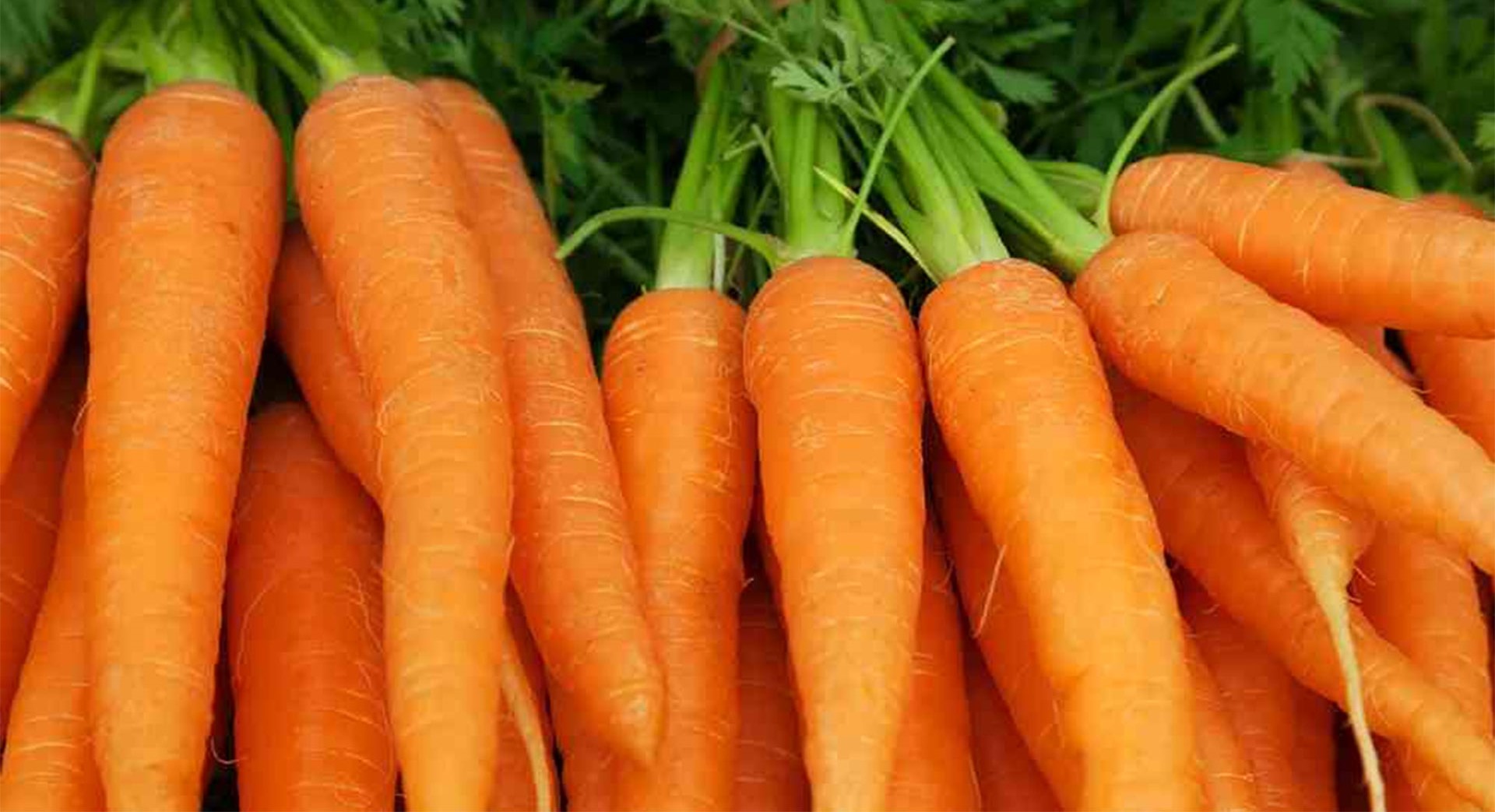 Why Are Carrots Good for Your Eyes?
Why Are Carrots Good for Your Eyes?
Carrots are rich in beta-carotene, a type of provitamin A that the body converts into vitamin A, an essential nutrient for eye health. Without adequate vitamin A, the eyes can’t function properly, and a deficiency may lead to night blindness and other vision issues.
Key Nutrients in Carrots that Support Eyesight:
-
Beta-Carotene (Provitamin A)
-
Lutein
-
Zeaxanthin
-
Vitamin C
-
Antioxidants
Let’s take a closer look at each of these nutrients and how they impact your vision.
1. Beta-Carotene and Vitamin A
The most well-known benefit of carrots is their high beta-carotene content. Once consumed, beta-carotene is converted into vitamin A, which is crucial for:
-
Maintaining the surface tissues of the eyes (the cornea)
-
Preventing night blindness
-
Supporting overall vision in low light conditions
-
Strengthening the immune system
According to the World Health Organization (WHO), vitamin A deficiency is one of the leading causes of preventable blindness in children worldwide. Regular intake of beta-carotene-rich foods like carrots helps reduce this risk.
2. Lutein and Zeaxanthin
In addition to beta-carotene, carrots contain two other powerful antioxidants—lutein and zeaxanthin—that are known to support eye health.
These nutrients are found in high concentrations in the retina, particularly the macula, which is responsible for central vision. They help:
-
Filter harmful blue light
-
Protect against oxidative stress
-
Reduce the risk of age-related macular degeneration (AMD)
-
Lower the chances of cataract formation
Studies have shown that individuals with higher dietary intake of lutein and zeaxanthin have a significantly lower risk of developing chronic eye diseases.
3. Antioxidants and Vitamin C
Carrots also provide vitamin C, another antioxidant that helps protect the eyes from free radical damage. Free radicals are unstable molecules that can harm the cells of the eyes and accelerate aging-related vision decline.
Vitamin C also supports the health of blood vessels in the eyes, which is particularly beneficial for those at risk of diabetic retinopathy or glaucoma.
Scientific Backing: What Research Says
Multiple studies confirm the link between a diet high in carotenoids (including beta-carotene, lutein, and zeaxanthin) and better eye health. For instance:
-
A study published in JAMA Ophthalmology found that individuals with high levels of carotenoids in their diet had a 35% lower risk of developing AMD.
-
The Age-Related Eye Disease Study (AREDS) also highlighted the importance of antioxidant vitamins (A, C, E) and zinc in slowing the progression of AMD.
While carrots alone won't prevent or cure eye diseases, they are a valuable part of a vision-friendly diet.
Can Carrots Improve Your Vision Overnight?
Despite the popular myth, eating a single carrot won't instantly sharpen your vision or help you see in the dark like a cat. The idea that carrots dramatically improve night vision was actually WWII propaganda—British pilots were said to eat carrots to enhance their night flying abilities, when in fact, the story was a cover-up for radar technology.
However, long-term consumption of carrots and other vitamin A-rich foods can support eye health and prevent vision deterioration over time.
How to Add Carrots to Your Diet for Better Eyesight
Getting the most out of carrots means eating them regularly and in various forms. Here are some tasty ways to enjoy them:
-
Raw: As a snack with hummus or yogurt dip
-
Cooked: Steamed, roasted, or stir-fried as a side dish
-
In soups and stews: Adds flavor and nutrients
-
Juiced: Combine with apple, ginger, or citrus for a refreshing drink
-
In smoothies: Blend with fruits and leafy greens for a nutrient-rich breakfast
Pro Tip:
Carrots are fat-soluble, meaning they are best absorbed with a small amount of healthy fat—like olive oil, avocado, or nuts.
Other Eye-Healthy Foods to Pair with Carrots
For maximum benefits, combine carrots with other foods rich in eye-supporting nutrients:
-
Leafy greens (spinach, kale): High in lutein and zeaxanthin
-
Sweet potatoes: Another excellent source of beta-carotene
-
Citrus fruits: High in vitamin C
-
Eggs: Contain lutein, zeaxanthin, and zinc
-
Fish (like salmon): Rich in omega-3 fatty acids, which support retina health
Conclusion
Carrots truly live up to their reputation as a vision-supporting superfood. Rich in beta-carotene, lutein, zeaxanthin, and antioxidants, they provide essential nutrients that help maintain healthy eyesight and protect against age-related eye problems.
While they won’t instantly improve your vision, incorporating carrots into a balanced diet can support your eyes over the long term. So the next time you’re thinking about a healthy snack, reach for a carrot—your eyes will thank you!

You must be logged in to post a comment.